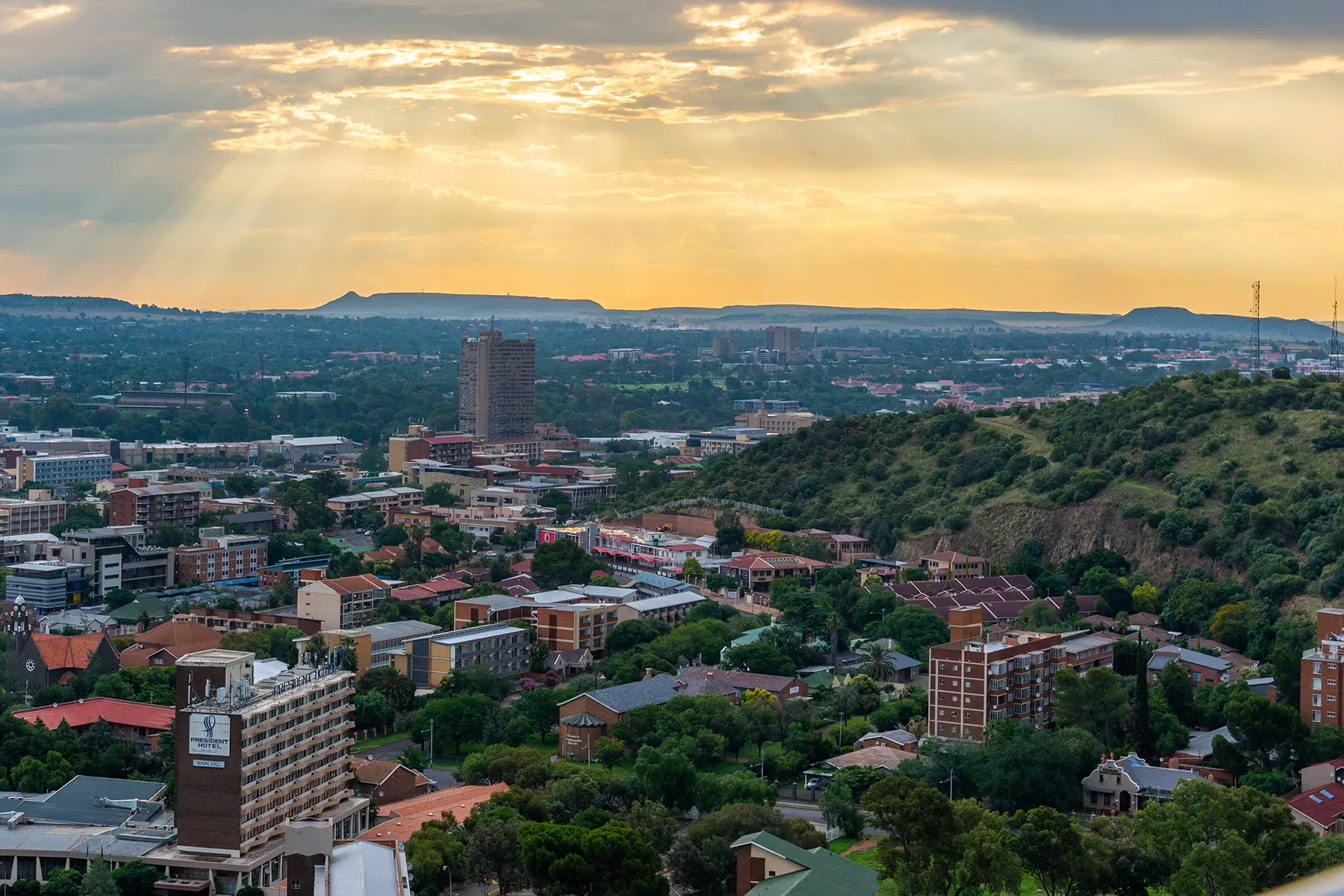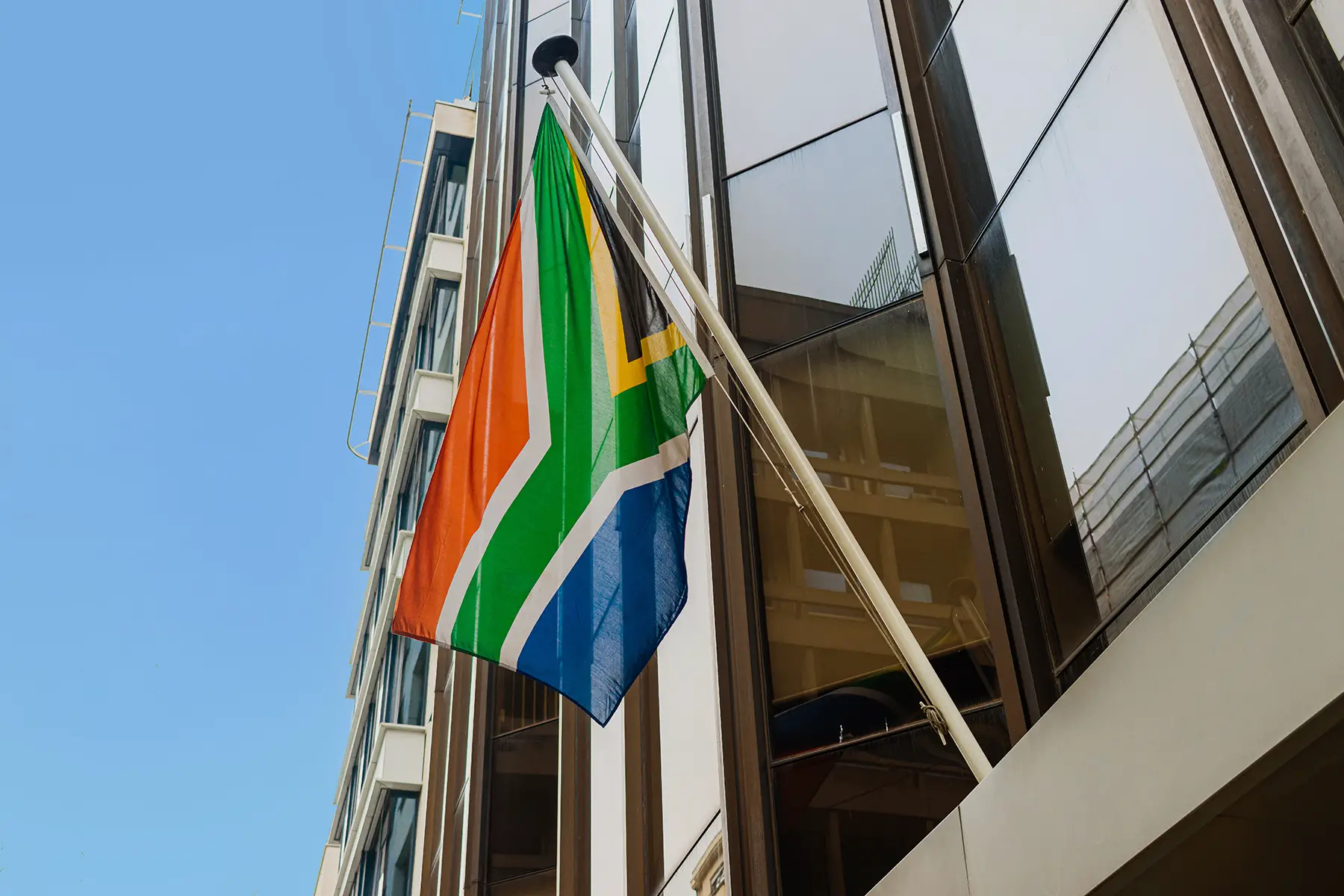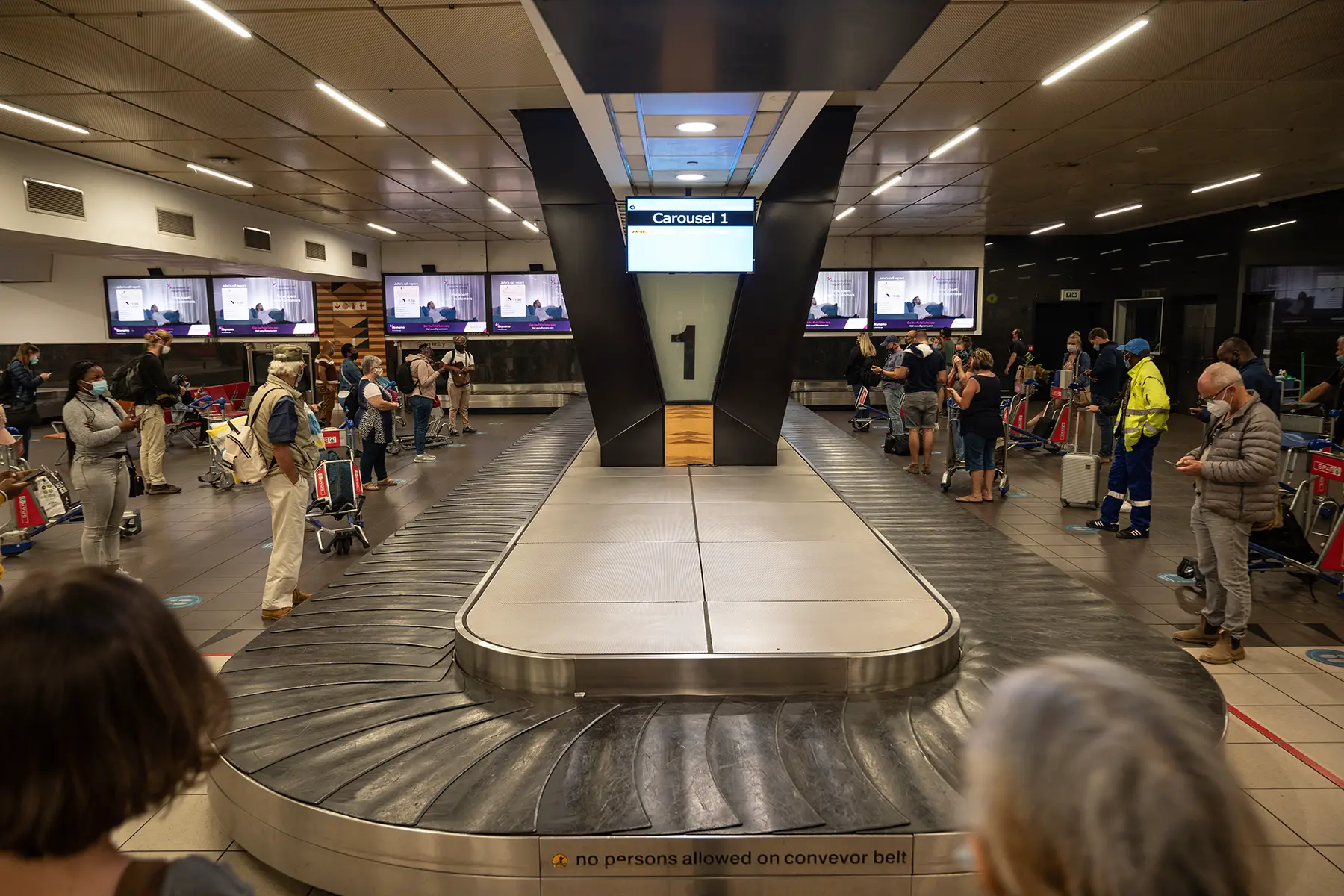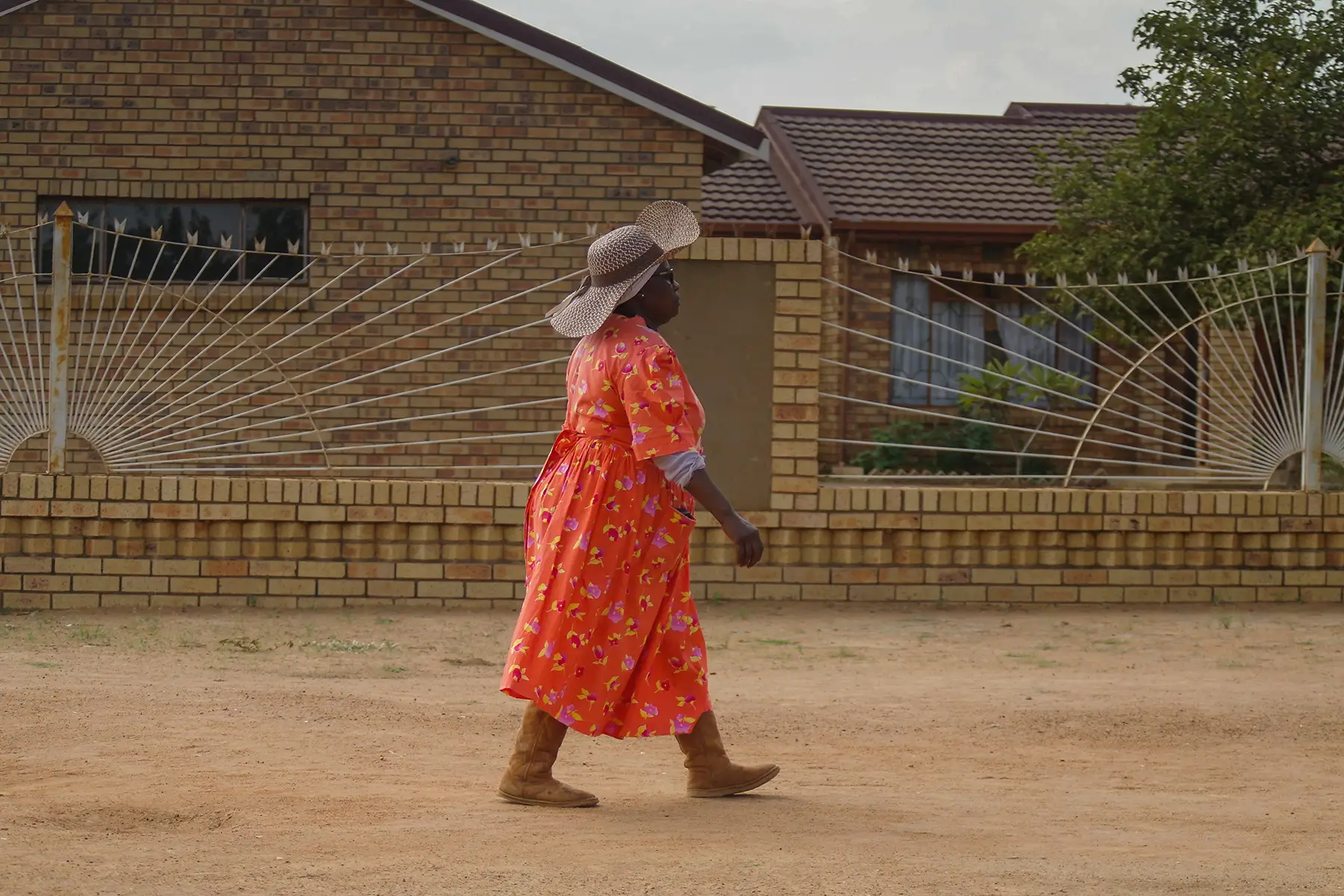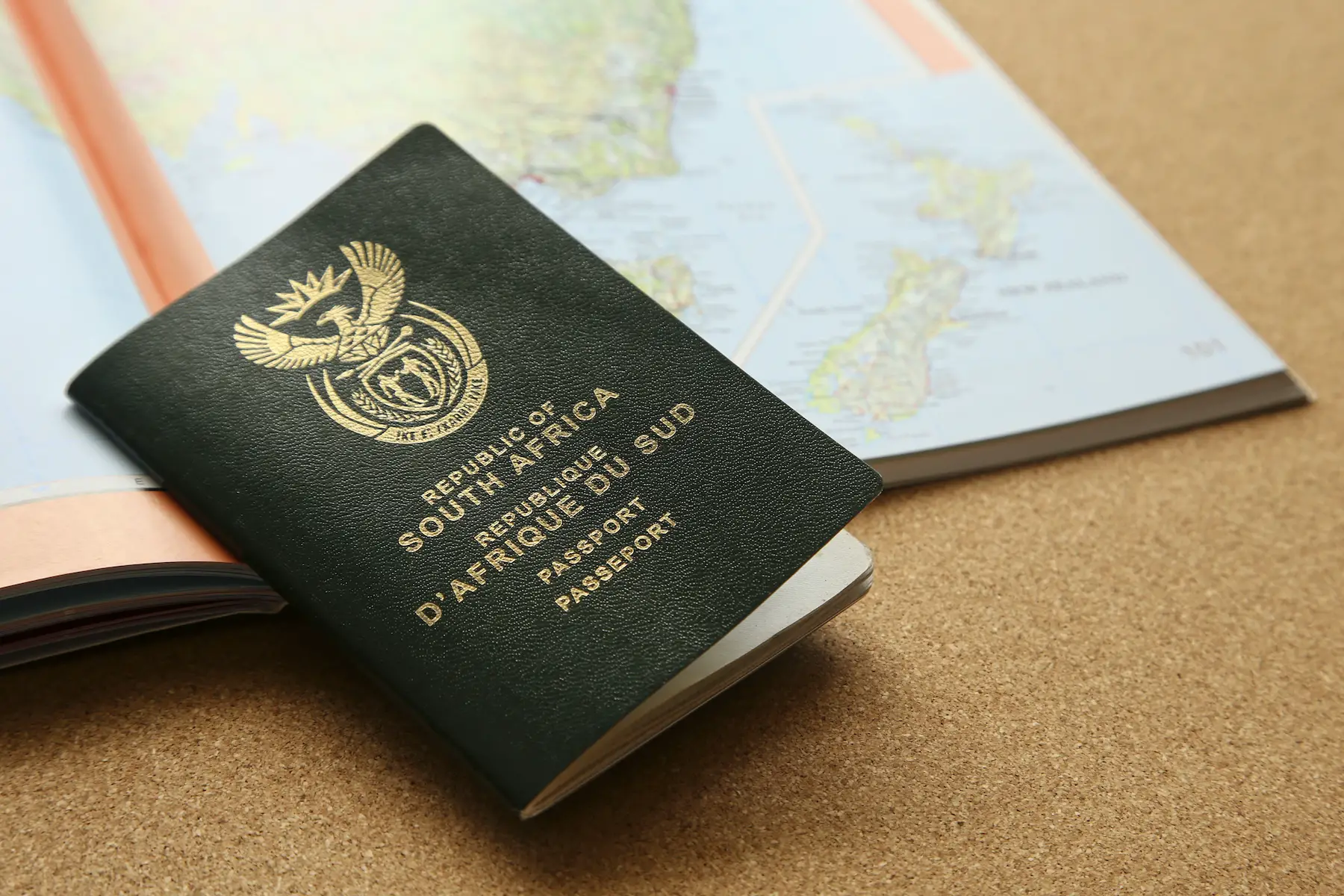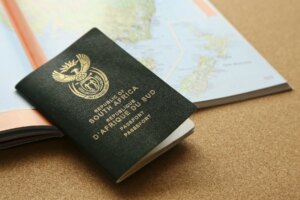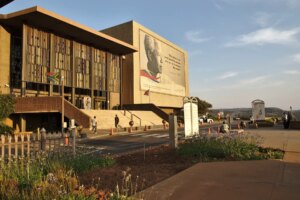South Africa is a beautiful and culturally diverse country that offers unique experiences and exciting opportunities. However, whether you’re planning to cross her rugged shores for work, study, or a quick visit, you may need a South African visa. Your nationality and reasons for coming to the country dictate which type of visa you need.
This guide explains the conditions for each type of visa for South Africa so you can choose the correct document. It includes the following information:
The Relocator
Planning a new life in South Africa? Give yourself some peace of mind with The Relocator. On their easy-to-use platform, you'll be able to compare your options quickly, getting quotes from some of the biggest names in global relocations. Move abroad confidently with The Relocator.
Immigration in South Africa
South Africa’s culturally diverse population is made up of 60 million people, of which 3.9% are immigrants. According to Statistics South Africa, almost half of new residents in 2022 came from Zimbabwe, and other common countries of origin were Mozambique, Lesotho, and Malawi. The largest number of immigrants from outside Africa came from the UK and India.

The county’s attractive climate, thriving outdoor lifestyle, and general quality of life are often cited as reasons for wanting to live in South Africa. Furthermore, newcomers from high-income countries may find the cost of living relatively affordable.
However, as a society, South Africa does have its problems. Indeed, general safety, security, and racial tensions remain the biggest concerns among expats living or considering moving to the country.
The information below provides an outline to the visa types available for South Africa, but if you need specific advice, contact the Department of Home Affairs (DHA) or its official immigration partner, VFS Global. VFS Global manages visa applications and facilitation centers for the DHA, but only the DHA can issue visas and permits.
Who needs a South African visa?
Anyone traveling to South Africa will need a visa to enter the country; be it for a holiday, visiting family, joining a partner, living, working, or studying. However, some countries are exempt from this rule.
When traveling with a child under 18, you should always check the current South African visa requirements and child policy as these sometimes change. Since 8 November 2019, for instance, foreign children traveling with their parents no longer need to present parental consent letters or birth certificates. Nonetheless, it can’t hurt to keep a parental consent letter and birth certificate handy just in case.
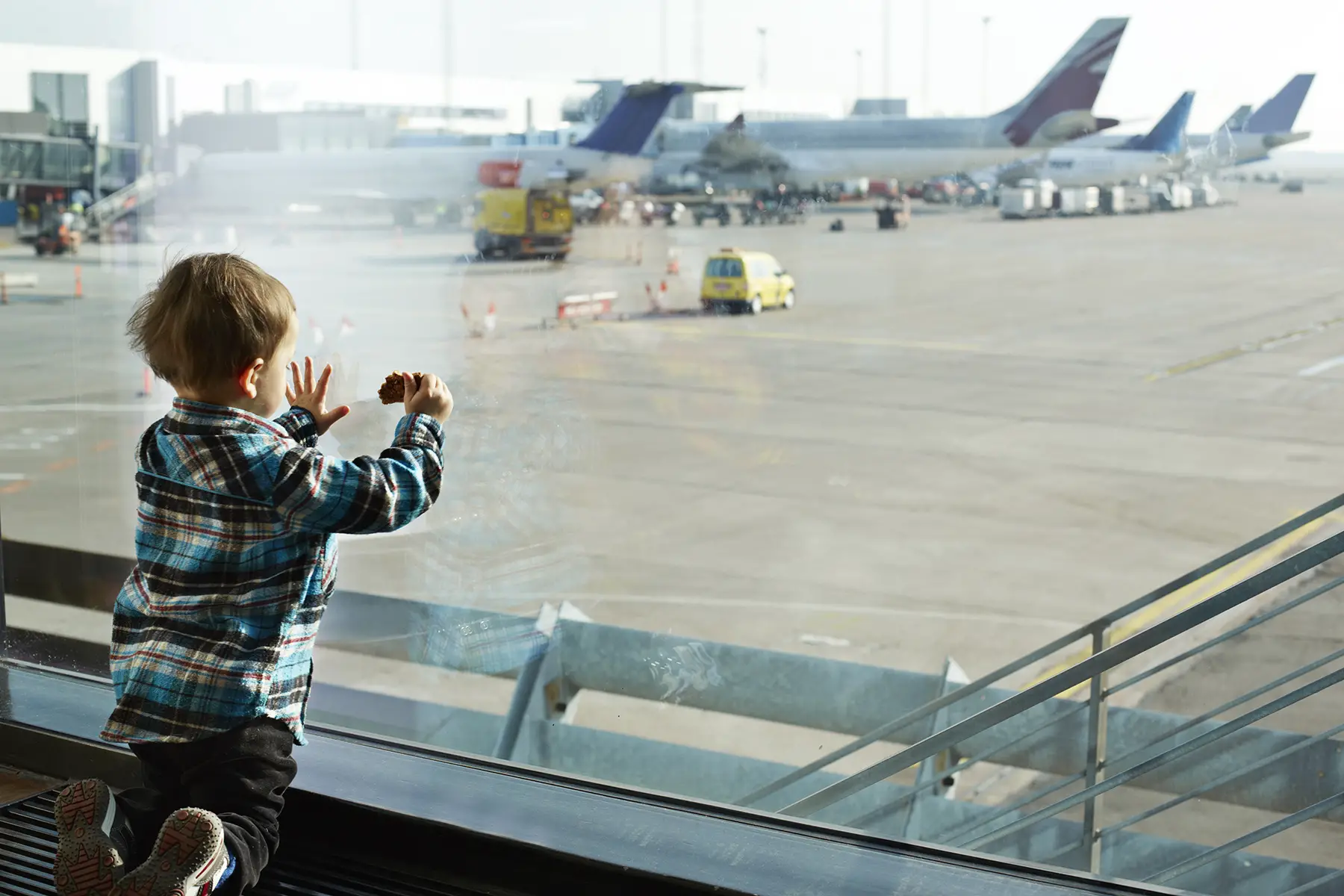
Essentially, your nationality and reason for entering South Africa determine the type of visa you require. You must apply in person and supply the necessary supporting documents.
If you reside outside of South Africa, you will need to book an appointment at the embassy or consulate in your country of citizenship or residence. However, if you are already in South Africa and want to apply for a different visa or extension, you must book an appointment at a VFS Global visa facilitation center.
Types of South African visas and permits
There are three main types of documents that allow you to enter South Africa:
- Temporary Residence Visa (TRV): lasts up to three years, depending on the purpose. Includes Transit Visas and Visitor’s Visas.
- Permanent Resident Permit (PRP): for people planning to live in South Africa indefinitely.
The type of visa you require, as well as the documents, costs, and processing time, will depend on your reason for entering South Africa, your nationality, and at which consulate or embassy you apply. And because processing times can vary between consulates and may often take longer than expected, it is advisable to apply for your visa well in advance.
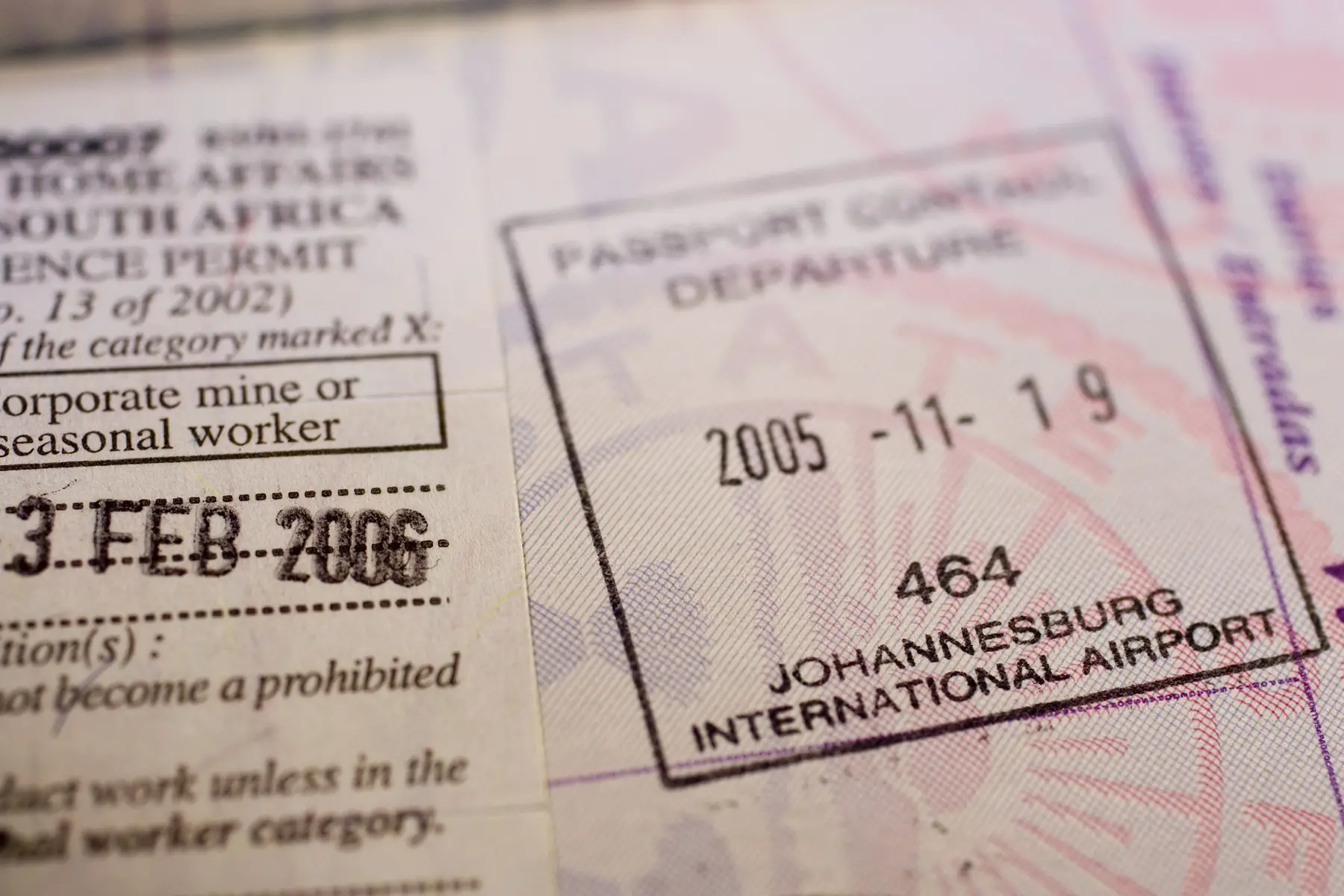
You can find a more detailed explanation of the numerous types of visas and permits for South Africa further down this guide.
Temporary Residence Visa (TRV)
The Temporary Residence Visa (TRV) is divided into several categories based on different reasons for entering South Africa. These are as follows:
While processing times for visas under this category vary, they typically take up to 60 business days from the date of submission. However, it can take up to 10 days to process the Visitor’s Visa and Holiday Visa.
- Transit Visa: sometimes applies to travelers passing through South Africa and lasts for up to three days.
- Visitor’s Visa: short-term Visitor’s visas last for up to 90 days, while long-term ones last for up to three years. These documents are available for tourism, family visits, business, and other purposes.
- Business Visa: allows a person to enter the country to work or invest in the economy.
- Study Visa: allows a person to study on a primary, secondary, or tertiary level for the duration of the course.
- Exchange Visa: for applicants who are 25 years old or younger wanting to participate in cultural, social, or economic exchange initiatives.
- General Work Visa: allows entry to a person with specific, in-demand skills for the duration of their work contract.
- Relative Visa: immediate family members of South African citizens or residents can apply to stay in South Africa for a maximum period of two years at a time.
- Medical Visa: allows a stay of six months for medical treatment.
- Retired Person’s Visa: pensioners with the financial means can apply to retire in South Africa.
South Africa Temporary Residence Visa requirements
When applying for a Temporary Residence Visa, you must meet the following criteria:
- Hold a valid passport with at least two blank pages, which only expires a month after your intended departure date from South Africa
- Ensure your temporary residence permit remains valid
- Submit the online application and required documentation at any VFS Global visa facilitation center or at the South African embassy in your country of residence or citizenship
- Provide a yellow fever vaccination certificate (when applicable)
The following supporting documents are required for all Temporary Residence Visas except the Visitor’s Visa:
- Radiological and medical reports
- Biometrics
- Criminal clearance certificates (not older than six months)
- A completed BI-1738 form
You can follow this simple step-by-step guide on how to apply for this visa. Notably, it is possible to transfer or rectify a Temporary Resident Visa in the case of damaged, lost, or stolen passports, but only if the passport is still valid.
Do I need a Transit Visa for South Africa?
Transit Visas exist for travelers entering South Africa who are on their way to another destination. However, these generally only apply to those who enter via a land border and holders of passports from Bangladesh or Pakistan. Travelers who have a layover at an international airport and stay in the international transit area typically do not require a Transit Visa, but you may need to provide biometric data.
It is essential to check with your local South African consulate before traveling for the latest information, as rules are subject to change and exemptions may apply to your situation or nationality.
Short-term Visitor’s Visas
The short-term Visitor’s Visa allows you to enter South Africa for a maximum of 90 days. You can use it for a range of purposes, including:
- Family visits
- Tourism
- Short business trips and conferences
- Medical treatment
- Sports events
Currently, 71 nationalities can enter South Africa visa-free for up to 90 days, and another 26 nationalities are exempt from visas when visiting for a maximum of 30 days. Processing times typically range between five and 10 days, but applicants are advised to apply well in advance in order to avoid delays. The costs include an application fee of R425 and a service fee of R1350.
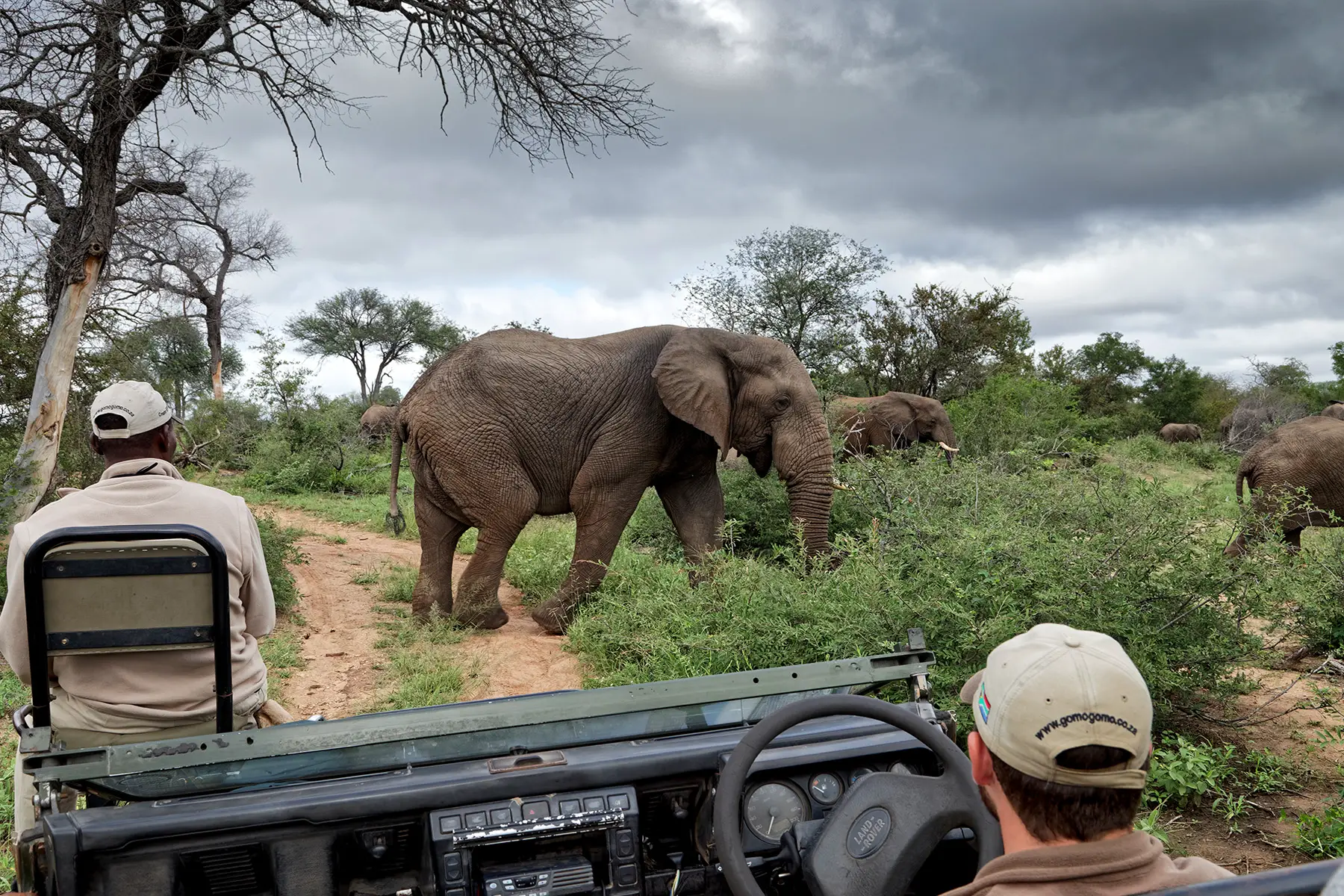
While in South Africa, you can extend your Visitor’s Visa at a visa facilitation center or through a registered immigration practitioner 60 days before the visa expiration date. Just be aware that renewal is not automatic and may not be the same duration as the original visa.
Because most visitor visas are only granted for single entries, you will need to lodge a new application to enter again once you have left the country. You will also need to leave the country and apply from your country of residence if you want to switch to another type of visa.
Long-term visitor visas
Digital Nomad Visa
South Africa introduced its Remote Worker Visa in 2024. Also known as a Digital Nomad Visa, this document is a type of Visitor’s Visa that allows internationals employed abroad to work remotely in the country for up to three years. It can be renewed.
To qualify, you must have a valid employment contract from a foreign-based employer and earn at least R650,796 per year.
South Africa Digital Nomad Visa requirements
You must provide the following to apply for the Remote Work Visa:
- Completed application form
- Document to explain the purpose and duration of your visit
- Valid return flight ticket (or reservation)
- Proof of salary (bank statements)
- Passport valid for at least 30 days after intended departure date
- Yellow fever vaccination certificate (if you are traveling through an area where yellow fever is endemic)
- Employment contract
- Application fee
Other long-term Visitor’s Visas
Under the Immigration Act, there are 12 additional long-term Visitor Visas on offer for purposes other than tourism. These are as follows:
- Academic sabbaticals
- Voluntary or charitable activities
- Research (includes visiting professors and lecturers)
- Accompanying spouses and children of Temporary Residence Visa holders
- Teachers at international schools
- Film and television crews and actors
- Foreign journalists working for foreign news agencies
- Artists who wish to write, paint, or produce sculptures
- Foreign entertainers on tour
- Tour hosts and leaders
- Foreigner (state) witnesses testifying in criminal court cases
Long term visitor’s visa requirements in South Africa
If you wish to apply for one of these visas, you will need to present the following documents:
- A valid passport with at least two blank pages; expiring no less than a month after your intended departure
- A return air ticket
- Proof of sufficient funds for the duration of your stay
- Proof of host address or hotel reservations
The new South African Electronic Visa, or eVisa is available for residents of 34 countries.
Business Visa
South Africa is a country that welcomes much-needed foreign investment. Therefore, a section of immigration legislation deals specifically with foreign individuals wishing to conduct business in the country or invest in a South African company.

If you are trying to start your own business, take over an existing business, or invest in a company in South Africa, you need to apply for a Business Visa. Furthermore, you will need to invest a prescribed financial capital contribution, and at least 60% of your workforce needs to be South African.
South Africa business visa requirements
The capital requirement may be reduced or waived for the following industries:
- Information and communication technology
- Clothing and textile manufacturing
- Chemicals and biotechnology
- Agriculture processing
- Metals and minerals refinement
- Automotive manufacturing
- Tourism
- Crafts
You should also show proof of the following:
- Certification by a chartered accountant of an amount determined by the minister or a capital contribution
- A recommendation from the Department of Trade, Industry and Competition (DTIC) regarding the feasibility of your business plan
- Undertaking to register with an appropriate statutory body, depending on the nature of the business
- An undertaking to register with the South African Revenue Service (SARS)
The processing time is within 40 working days and the cost is R1,520 for the application plus R1,350 for the service fee.
Study Visa
Foreigners who want to study in South Africa, at any level, must apply for a Study Visa before they arrive in the country. This applies even if you are coming to South Africa as the dependent of someone who is coming to work there. International students applying for scholarships in South Africa may also require a Study Visa first. You can read more about how to apply, as well as the requirements, in our guide to student visas in South Africa.
Exchange Visa
Young people aged 25 and under can apply for an Exchange Visa in order to participate in economic, cultural, and social exchange programs in South Africa. Notably, these programs must be affiliated initiatives between a South African state body or higher education institution and an international organization or education institution.
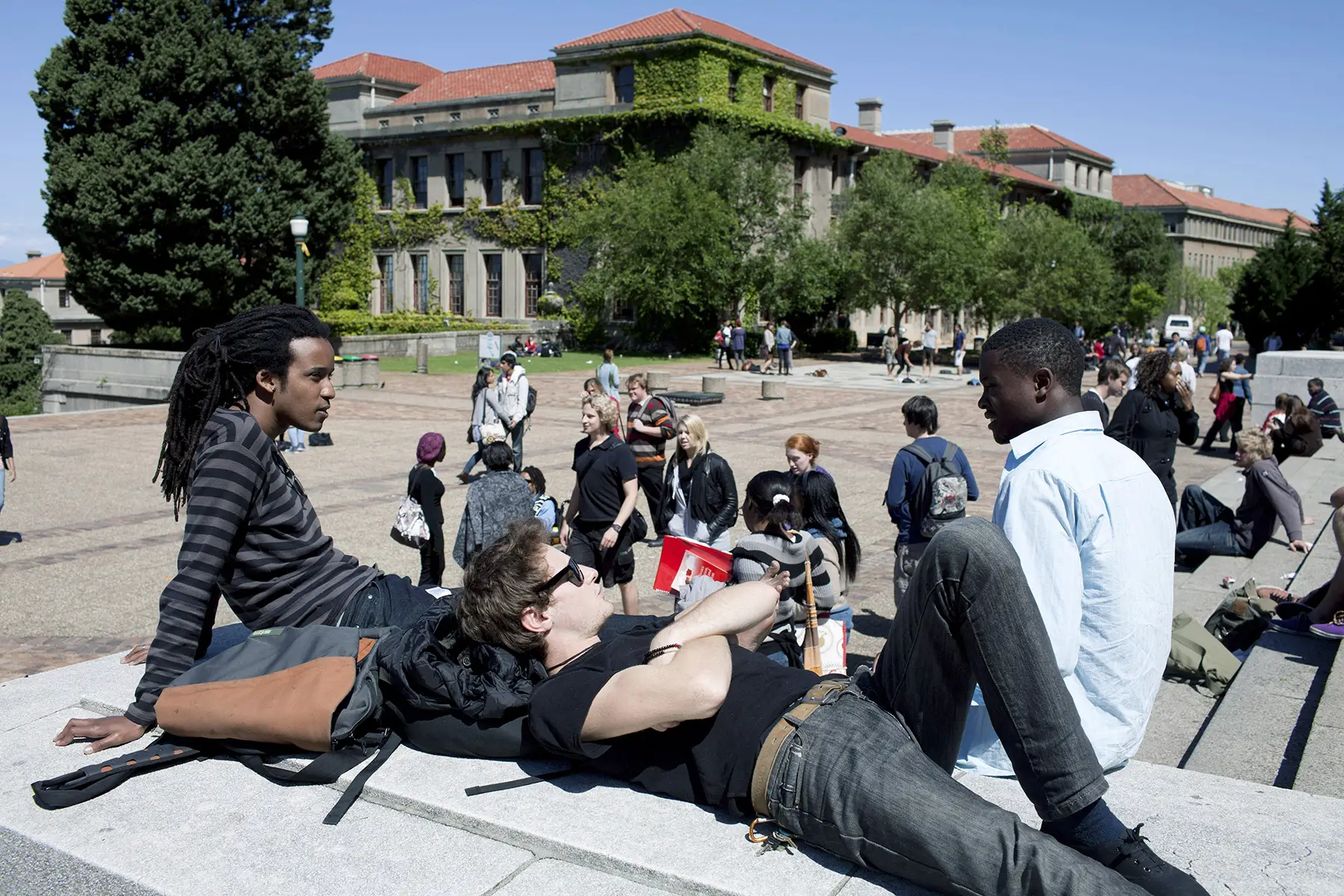
It is important to note that these visas are only valid for the duration of the program and cannot be renewed or extended. The documents required depend on the exchange program and the processing time is within 40 working days. You will need to contact the embassy to find out the costs as these can vary.
Work visas
There are four primary types of work visas available for South Africa, and these depend on the applicant’s situation. You can read more about these in detail in our guide to getting a South African work visa.
In short, these main work visas are:
- General Work Visa
- Critical Skills Work Visa (GSWV)
- Intra-Company Transfer Visa (ICT)
- Corporate Work Visa
Relative Visa
Family members of a South African citizen or permanent resident can apply for a temporary residence Relative Visa if they fall within the first or second line of kinship.
This visa applies to the following:
- Spouses
- Life partners
- Parents
- Children
- Siblings
Life partners (heterosexual or same-sex) of a South African citizen or permanent resident must provide comprehensive and satisfactory evidence that their relationship is at least two years in length to apply for the Relative’s Visa.
Spouses or partners who want to work, study, or conduct business must apply for a Visitor’s Visa 11.6 (Reside with SAC and work). Notably, this visa is not available to any other relatives.
In the case of dependent family members, the South African citizen or permanent resident must prove their ability to care for the applicant financially. Furthermore, the applicant is not allowed to work and must prove kinship via a birth certificate. For spouses, a financial requirement is not necessary. However, they may be subject to an interview to demonstrate the authenticity of the relationship. You can read a full list of required documents on the visa facilitation website.

Relatives’ permits are valid for two years and can be extended. For certain immediate family members – such as a spouse or dependent children – the permits are issued free of charge (except for the VFS fee). That said, there is still an additional application fee and different conditions for extended family members wishing to visit South Africa.
Processing time for the Relative Visa is up to 60 working days from the date of submission. The costs depend on the relationship between the applicant and the South African resident or citizen.
South Africa Medical Visa
A Medical Visa is required if you enter South Africa on the grounds of seeking medical treatment. The DHA issues this visa for a maximum of six months and only if specific visa requirements are met. Notably, the permit holder is not permitted to work or look for work during this period.
Medical Visa requirements
Apart from the typical supporting documents, the applicant must provide a letter from their registered medical practitioner or institution stating:
- The available space in the medical facility
- Estimated costs of the treatment
- The treatment schedule and period of intended treatment in South Africa
- The prognosis
Additional documents include:
- Proof of financial means or health insurance to cover all the medical costs
- Proof of economic independence to cover living costs
- A valid return air ticket
- The particulars of the applicant’s companions (if applicable)
The processing time for a Medical Visa is up to 60 working days from the date of submission, and the costs are R425 for the application fee and R1,350 for the service fee.
Retired Person’s Visa
The Retired Person’s Visa is a temporary residence visa for any person, regardless of age, who intends to retire in South Africa. To qualify for this visa, the applicant must show that they have sufficient financial means to support themselves in South Africa.
To meet the necessary financial requirements, the applicant will need to show that they receive a monthly income of at least R37,000 per month through specific means; such as a pension fund, an irrevocable retirement annuity, a net worth, or a combination of assets.
Permanent Residence Permit (PRP)
In South Africa, the step between a temporary visa and citizenship is a Permanent Residence Permit (PRP). Before applying for this, applicants must submit a presentation to the Minister of Home Affairs that they are not undesirable or prohibited persons.
It is important to be aware that applying for permanent residency in South Africa is a lengthy process with much paperwork, and requires an applicant to have lived in South Africa for at least five years.
The applicant (and spouse if applicable) will need to complete a BI-947 application form and book an interview appointment with a Home Affairs officer at a visa facilitation center.
Permanent Residence Permits are possible on many grounds, including the following:
- When you have a permanent work offer in South Africa
- If you have exceptional skills and qualifications
- You intend to establish a business in South Africa
- If you qualify as a refugee according to the Refugees Act
- You qualify as a retired person
- When you are financially independent
- If you are the relative (biologically or judicially adopted) of a South African citizen or PRP holder
The processing time for Permanent Residence Permits, in the extra-ordinary skills, general work, and business category range, is within eight months. However, all other forms of Permanent Resident Permits are finalized between 12 and 24 months.
The application fee for a Permanent Residence Permit is R1,520, with a service fee of R1,350. However, the application fee has been waived for refugee applicants.
You can find more comprehensive information on how and when to apply for a Permanent Residence Permit in our dedicated article.
Citizenship in South Africa
If you were born in South Africa and have at least one parent who is a South African citizen, or holds a Permanent Residence Permit (PRP), then you automatically qualify for South African citizenship. Additionally, you may be able to obtain citizenship by descent or naturalization. Once you have lived in South Africa for five years with a Permanent Residence Permit, you can also apply for South African citizenship.
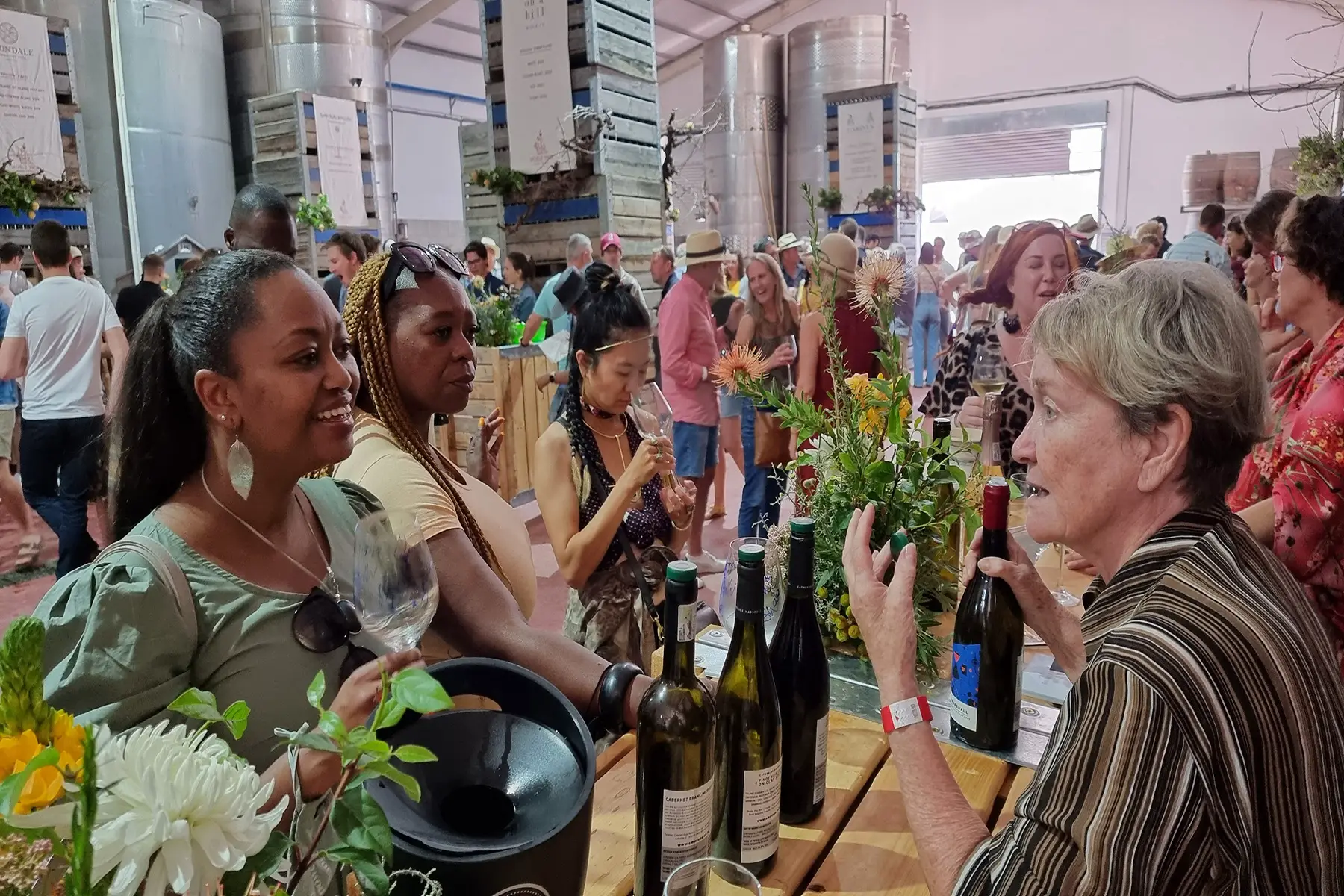
However, be aware that the process is involved and time-consuming, and requires a great deal of patience. Before applying, you need to request a Determination of Citizenship at the DHA to establish your eligibility for citizenship and which application to submit.
For comprehensive information on the process and all the requirements to become a South African citizen, you can read the full clarification by the Department of Home Affairs. Of course, you can also read our guide to getting South African citizenship.
Asylum seekers and refugees in South Africa
The South African government makes a distinction between an asylum-seeker and a refugee. An asylum-seeker has fled their country and is seeking recognition and protection, but their application is not yet approved. Conversely, a refugee has asylum status and protection according to the Refugees Act 130 of 1998.
Statistics for South Africa show that the country hosted 67,145 refugees in 2023. Demographically speaking, they have fled from Somalia, the Democratic Republic of Congo, Ethiopia, Zimbabwe, and the Republic of Congo.
The process for seeking asylum or refugee status in South Africa
The Department of Home Affairs (DHA) outlines the process for seeking asylum or refugee status in South Africa on its website. When an asylum-seeker enters South Africa, they are issued a non-renewable Section 23 Permit (i.e., Asylum Transit Permit) which is valid for 14 days.
The asylum-seeker must apply for asylum status – under section 21 of the Refugee Act – in person at a refugee reception office (RRO). They must present their Section 23 Permit, proof of identity from their country of origin, and any travel documents (if possible). Notably, due to long queues and delays, this process can take days.
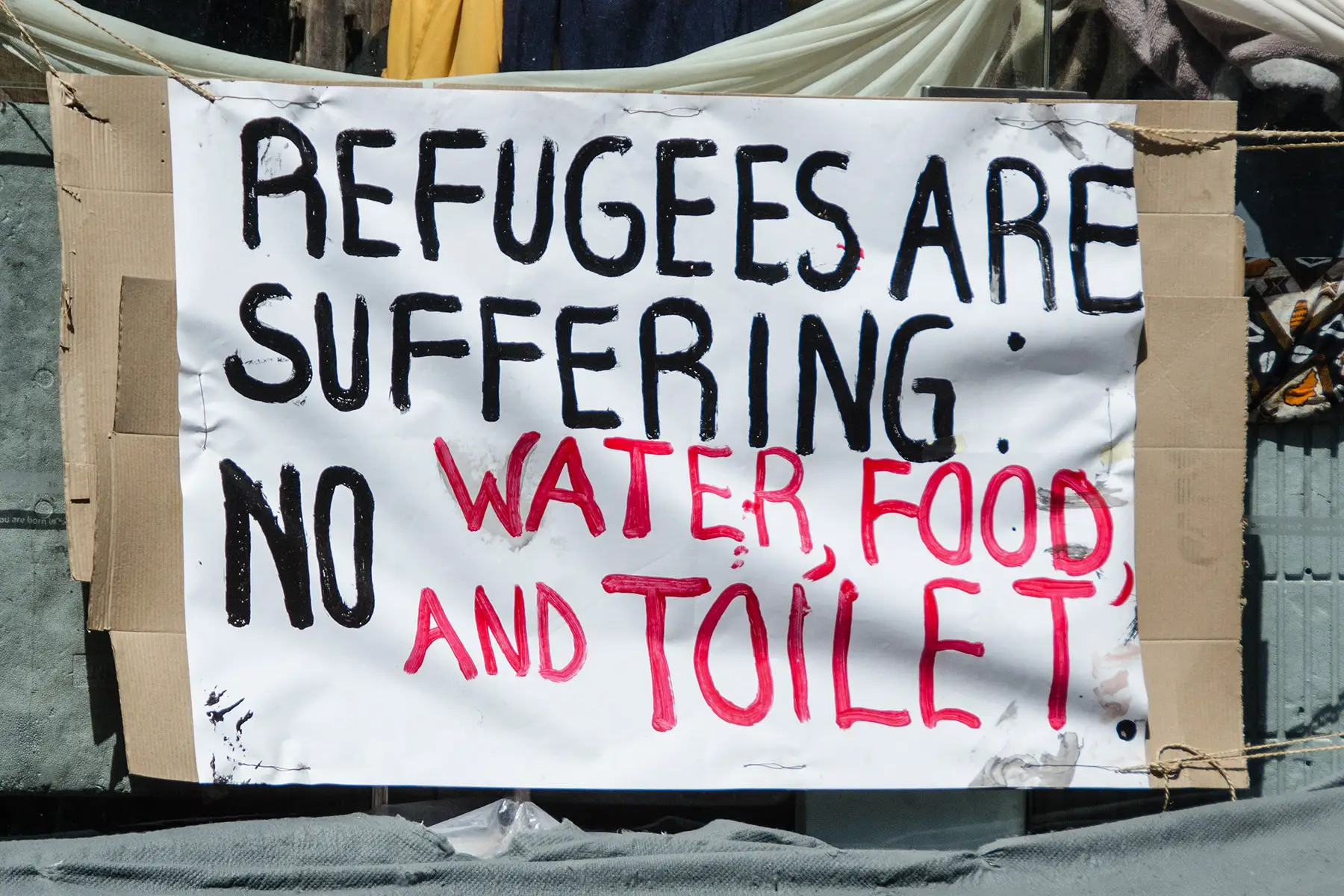
At the RRO, the applicant will be interviewed (i.e., an admissibility hearing) to establish their eligibility for refugee protection and complete the B1-1590 form. The applicant will then receive a case number and a Section 22 Permit which is valid for three to six months. This grants the holder access to medical services, education, and the right to work. The applicant must renew the permit continually until they are invited to a second interview.
A Refugee Status Determination Officer (RSDO) conducts the second interview (i.e., status determination hearing) to verify information in the applicant’s file and look deeper into the asylum-seekers background. The applicant may be accompanied by a witness, legal representative, and interpreter. The RSDO will conclude this interview by providing the date that the applicant can return to find out the outcome of their application. This process can take months.
If successful, the asylum-seeker will officially become a refugee with a Section 24 Permit which is valid for two years. This permit can be continuously renewed, three months before it expires. If refugee status is refused, the applicant can appeal to the Refugee Appeal Board or the Standing Committee on Refugee Affairs within 30 days.
Requirements for applying for a Permanent Resident Permit (PRP) as a refugee
All refugee applicants applying for a Permanent Resident Permit in South Africa must provide the following documents:
- Proof of their continuous refugee status in South Africa for five years
- Certification from the Standing Committee for Refugee Affairs verifying the applicant’s indefinite refugee status
- An affidavit listing aliases used for refugee status by the principal applicant or any family members
Arriving in South Africa
Moving to South Africa – or any country – can feel overwhelming; particularly when it comes to all the things you need to do in your first week.
Therefore, to help you put together a comprehensive checklist, here are the main things you will need to arrange before and after you arrive in the country:
- Checking passport expiry dates
- Checking visa requirements and processes to transfer from a temporary to permanent permit
- Sorting passport photos for various applications and registrations
- Gathering your doctor’s records and registering with a GP
- Making sure you are fully immunized
- Arranging accommodation (renting or buying)
- Transporting your belongings to South Africa
- Sorting schooling (international school or South African school)
- Opening a South African bank account
- Arranging insurance (home, social, car, health, dental, contents, life, unemployment, pet, travel, and commercial)
- Setting up your home utilities
- Choosing a mobile phone, internet, and television provider
- Getting a driver’s license and learning about the country’s driving regulations
- Buying a car (or learning about the public transport system)
- Learning how to file your income tax in South Africa as an expat
- Possibly arranging domestic help in your home
Appeals and complaints
Appeals and complaints regarding visa applications are managed by VFS Global, which promises to respond to complaints within two to four business days.
The complaint procedure is as follows:
- Complete the online form from VFS Global customer services
- Include your:
- Full name
- Contact details
- Clear description (e.g., date, location, names of staff, and relevant context)
- Type of application and reference number
Notably, there are VFS Visa Facilitation Centers in the following locations:
- Bloemfontein
- Cape Town
- Durban
- George
- Gqeberha (formerly Port Elizabeth)
- Johannesburg
- Kimberley
- Nelspruit
- Polokwane
- Pretoria
- Rustenburg
Useful resources
- Department of Home Affairs (DHA) – find more information about visas and immigration in South Africa
- VFS Global – the official visa and immigration partner of the Department of Home Affairs (DHA)
- Scalabrini – an organization that helps migrants and refugees integrate into South Africa
- Home Affairs – provides a list of refugee centers in South Africa


